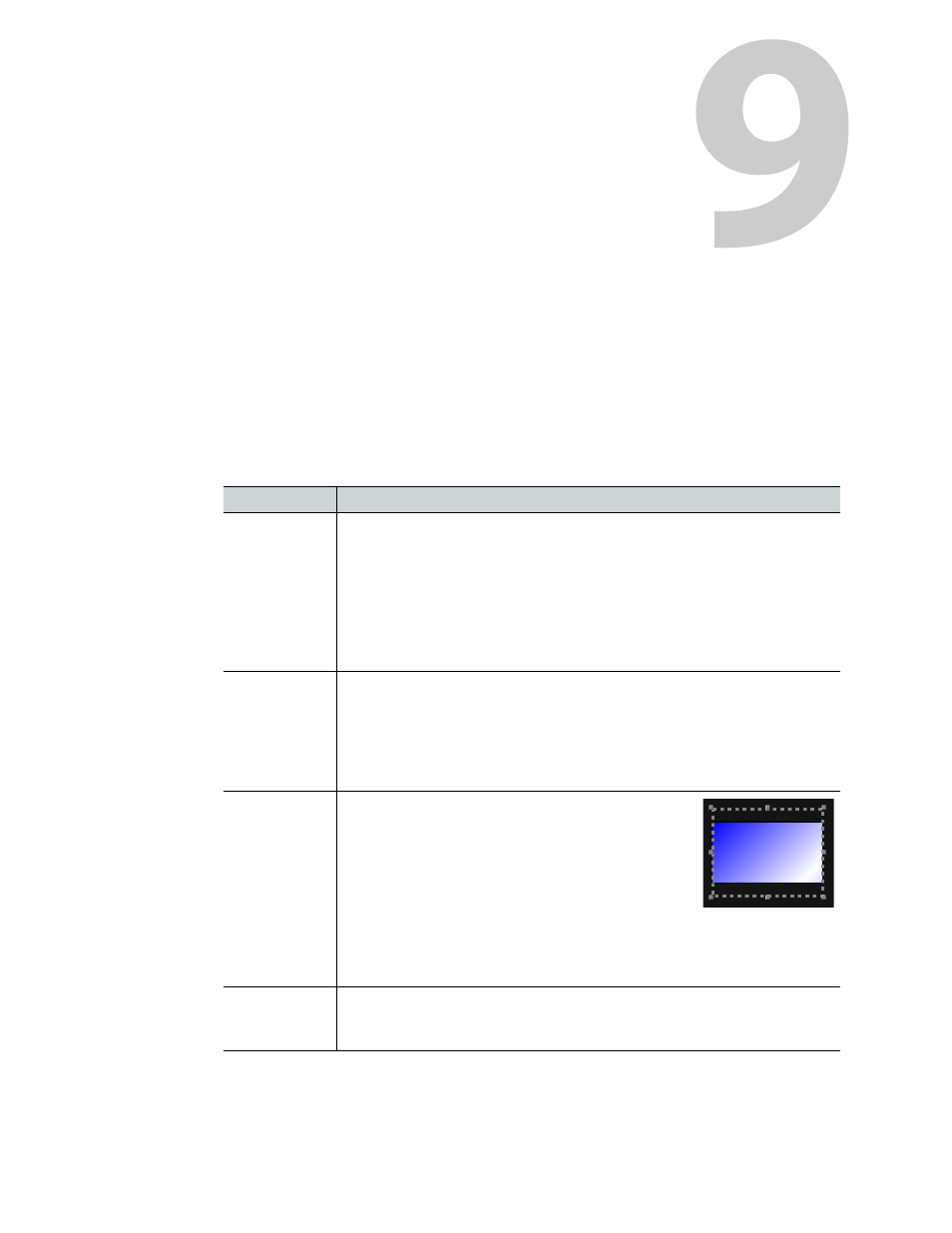Creating layouts, Key concepts, Layouts and layout elements – Grass Valley Kaleido-X v.7.80 User Manual
Page 239: 9 creating layouts

231
Creating Layouts
This section describes layout elements and their purposes, and provides detailed
configuration instructions.
Key Concepts
Layouts and Layout Elements
Layout elements
Term
Description
Layout
A layout is a visual grouping of monitors that appear on displays within a
room. A layout includes different types of monitors in a variety of placements
and sizes. There are two types of layouts: room layouts and full screen
layouts. See
Note:
Before creating layouts, you may want to review your room
configurations. Should a display be rotated in a room (see
on page 225), some layout elements in your existing room
layouts may require adjustments.
Monitor
A monitor (also called widget) is an element that is part of a layout. The
Kaleido-X software supports several types of primitive layout elements (e.g.,
clocks, video monitors, audio monitors, UMDs, time code monitors, etc.), as
well as composite monitors. All primitive layout elements, except for the
video monitors and subtitling monitors are graphical layout elements.
See
Video monitor
A video monitor is a layout element used to define an
area for displaying a video signal. It is represented in
XEdit by the boundary box made visible by clicking
the element.
Within a video monitor, the video window is the active
area where the video signal is displayed, possibly
including closed captions or teletext. The video
window is represented in XEdit by the blue rectangle inside a video monitor.
The video window does not necessarily cover the complete video monitor’s
area. See
Composite
monitor
A composite monitor is a group of primary elements that can be seen as a
single object within a layout. Composite monitors typically include a video
window, one or more audio level meters, and a UMD with two tallies.
